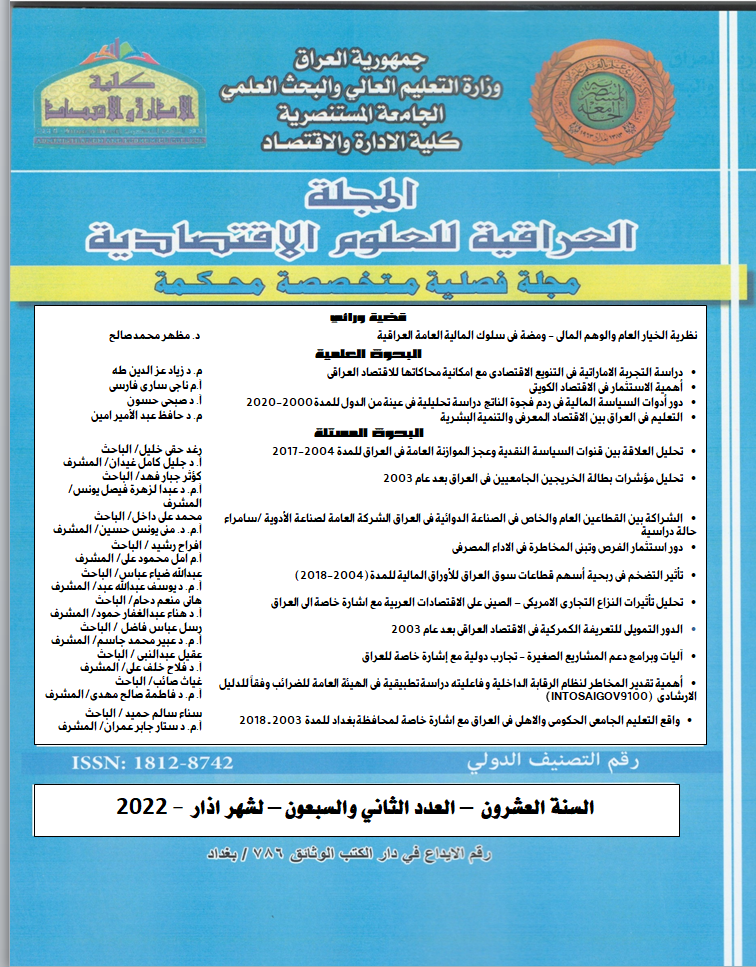The Financing Role Of The Customs Tariff in The Iraqi Economy After 2003
Keywords:
Financing Role, Customs Tariff, WTO.Abstract
Abstract
The customs tariff represents a very important financial tool after oil in financing the general budget and expanding the scope of public revenues and providing them with financial resources. However, the legislative authority legislated the tariff law and applied it late, and that corruption was one of the most important reasons that made this resource weak contributing to public revenues, and the problem of research lies in the financing role of the customs tariff is very weak, even after the application of the customs tariff law of 2010, and the tariff did not contribute as required to financing the state with customs revenues. The research is on two axes, as the first axis deals with the theoretical framework of the customs tariff and the second axis is the customs revenues in Iraq and their role in financing the public budget after 2003, and that one of the most prominent conclusions reached by the research is the percentage of the contribution of customs revenues to public revenues is still weak, as the average contribution rate reached The customs revenue in the general revenue is (0.71%), which is less than the correct one until After the application of the customs tariff law, the indicator of customs evasion has increased for some selected years, which were chosen since the law was applied, to find that the rates are still high and that this indicates the weakness of the state to curb these practices, and the most prominent recommendations came that the economic authority must activate its control tools in order to preventing customs evasion or using other practices to avoid wasting resources from customs to expand the scope of its contribution to the structure of tax revenues and raise its contribution to the public budget
Downloads






